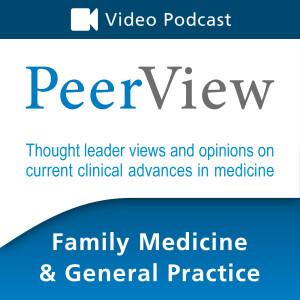
Lakshi Aldredge, MSN, ANP-BC, DCNP, FAANP / Peter A. Lio, MD - Targeting Interleukins to Improve Treatment Outcomes in Atopic Dermatitis
 2023-09-20
2023-09-20
Download
Right click and do "save link as"
Go online to PeerView.com/FRX860 to view the activity, download slides and practice aids, and complete the post-test to earn credit. Atopic dermatitis (AD) is a chronic disease that affects a significant portion of the US population. The current treatment paradigm for AD is complex, involving multiple active drugs tailored to different body parts, stages of the disease, and severity levels, in addition to moisturizers, bathing practices, and lifestyle recommendations. However, the effectiveness of certain available treatment options is limited because of concerns regarding efficacy, tolerability, and safety. In recent years, there have been significant advancements in the treatment of AD, including the approval of the first biologic agent and the ongoing clinical development of targeted therapies. In this activity, a panel of experts discuss the severity of AD across different patient populations, considering the chronic and heterogeneous nature of the disease, and the underlying pathophysiologic processes that contribute to the development of AD. In addition, they explore individualizing treatment for patients with moderate to severe AD, with a goal of minimizing and preventing flares. Upon completion of this activity, participants should be better able to: Diagnose the severity of AD across different patient populations, considering the chronic and heterogeneous nature of the disease; Describe underlying pathophysiologic processes that contribute to the development of AD, and provide rationale for the use of targeted biologic therapy; and Select appropriate treatment for patients with moderate to severe AD, including biologic agents as appropriate, according to recent clinical evidence and current guidelines, with a goal of minimizing/preventing flares
view more
More Episodes
012345678910111213141516171819
Create your
podcast in
minutes
- Full-featured podcast site
- Unlimited storage and bandwidth
- Comprehensive podcast stats
- Distribute to Apple Podcasts, Spotify, and more
- Make money with your podcast
It is Free
- Privacy Policy
- Cookie Policy
- Terms of Use
- Consent Preferences
- Copyright © 2015-2024 Podbean.com





